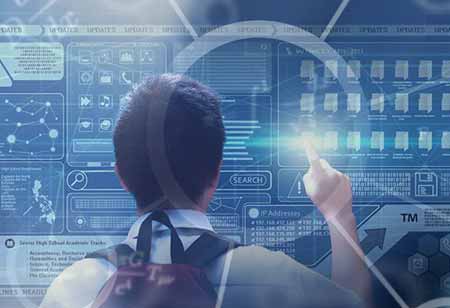THANK YOU FOR SUBSCRIBING
Be first to read the latest tech news, Industry Leader's Insights, and CIO interviews of medium and large enterprises exclusively from Education Technology Insights
AI-Based Methods for Boosting Student Services in Online Courses
The pandemic has wreaked havoc on the United States' higher education system, with many large institutions reporting record declines in student enrolment

By
Education Technology Insights | Thursday, February 10, 2022
Stay ahead of the industry with exclusive feature stories on the top companies, expert insights and the latest news delivered straight to your inbox. Subscribe today.
Many institutions' pivots last year during the pandemic have matured into long-term strategic changes. These developments have set the way for a new learner success era centered on adaptability, lifelong learning, and holistic well-being
FREMONT, CA: The pandemic has wreaked havoc on the United States' higher education system, with many large institutions reporting record declines in student enrolment. One explanation for this is because educators are missing critical indicators of student progress during online learning—signs they normally receive during in-person classes. This has a direct effect on enrollment and graduation rates in colleges.
To address difficulties fundamentally, higher education institutions must first understand how their students learn. This includes determining how students spend their time and determining the most and least productive times of day for pupils. This requires educators to understand which assignments have the most beneficial results and which ones need to be redone. Most importantly, educators must understand how to apply this knowledge in student success programs. This is where artificial intelligence (AI) can make a significant contribution.
AI Can Assist in the Development of Customized Assignments and Group Projects: Many students have been forced to take additional jobs to help their families survive, which is one reason for the dramatic enrollment reduction. To solve this issue, instructors must understand when students place a higher premium on necessary work than attending class and completing assignments. Individualized attention and projects will be required for these students.
Several colleges are already leveraging AI to extract value from data stored in systems and activity logs such as Blackboard, student information systems, and Google apps, proactively identifying areas for improvement.
AI Can Provide Customized Course Recommendations: AI-enabled data analytics enables quantifiable productivity. AI can provide personalized recommendations that assist students in establishing—and maintaining—a path to success.
For instance, data can disclose when a student abruptly alters his or her study habits, indicating that the student may be struggling. Additionally, data can indicate the characteristics that contribute to students' success in specific courses and aid in making recommendations for course corrections. At the same time, there is still time to take preventative measures.
This data is critical in assisting higher education in efficiently identifying and resolving issues that arise during online or hybrid learning. Professors and students can better grasp how to increase productivity and assist students through the use of personalized, actionable recommendations given by AI.







